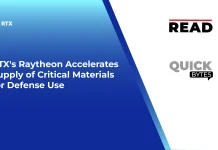Altana introduced the world’s first Value Chain Management System, a massively scalable platform built on the only dynamic, intelligent map of the supply chain that brings together a host of new capabilities that enable customers to:
- Illuminate their extended supplier and distribution networks based on their actual products, and situate them within the global map;
- Provide contextualized AI decision support across the full range of value chain related work, from compliance to sustainability to financing; and
- Collaborate with internal colleagues and external partners across a common operating picture with end-to-end workflows to get jobs done.
Government regulation, climate change, and supply chain disruptions — from port closures to turmoil in the Red Sea — are all driving a new imperative for businesses to know, understand, and manage their global value chains, from the sourcing and processing of raw materials, through intermediate production and final assembly, to sale and end use. Until Altana, there was no way to know, connect, or manage across these extended, global, multi-tier networks.
Altana has built the world’s first Value Chain Management System by using applied artificial intelligence on the largest body of supply chain data in the world, assembled through Altana’s unique, proprietary federated data architecture. This architecture delivers a map that is more than twice as rich as anyone else can provide, and allows Altana to integrate every customers’ siloed product knowledge, supplier data, and systems with Altana’s dynamic map to create one clean, integrated, and verified source of truth for their business, revealing their actual value chains, not outside-in estimates, situated within the context of the global supply chain network.
Also Read: TraceGains and iFoodDS Announce Strategic Alliance to Ease the Burden of FSMA 204 Adoption
New capabilities using advanced artificial intelligence (AI) and machine learning (ML), include:
- Enhanced visibility and data management capabilities across a common operating picture. Companies can connect their supply chain data, documentation, internal knowledge, surveys, and third party analytics to create a unified view of their global value chains in hours. Users can reveal, verify, and document their actual value chain network built from their actual bill of materials, and share the same view with suppliers, customers, colleagues, and regulators.
- Unified system that supports many use cases with end-to-end workflows, allowing customers to move beyond risk scores. New tools and workflows to support jobs that cover the full span of value chain-related business priorities, from supplier identification and qualification, to managing Scope 3 carbon emissions and reporting, to value chain design and planning across product lines.
- Extended, networked collaboration throughout your organization and across your value chains. Share, verify, and take action on value chain intelligence with internal and external stakeholders, including distant suppliers, extended customers, and service providers everywhere, through collaborative workspaces.
- Powered by the world’s largest network of organized supply chain data, growing more than 30%. The Altana knowledge graph now comprises more than 2.8B shipments, tracking more than 500M companies and 850M facilities down to the part-site level, with more than 125M distinct facility-to-facility relationships. Approximately 50% of Altana’s facility-to-facility supply chain linkages come from Altana’s proprietary data network – meaning that Altana has at least double the supply chain network visibility that is theoretically possible from publicly available data alone. This advantage compounds as more and more customers join the Altana platform.
- Security enhancements. As part of a commitment to maintaining the highest standards of data security, Altana is proud to have achieved SOC2, Type 2 certification. This rigorous, independent assessment confirms Altana’s systems are designed to keep customers’ sensitive data secure and are in accordance with the highest industry standards.
“Businesses today are now being held accountable for behavior related to their products and practices that occur anywhere in the global network, no matter how indirectly,” said Evan Smith, co-founder and CEO, of Altana. “We are coming upon a new era of global commerce that will require a refactoring of globalization around trusted value chains. It is now critical to know, collaborate, and manage across extended value chains, which is only possible with our new platform purpose-built for value chain management.”
“It can be difficult to know, connect, or manage across extended, global, multi-tier networks and ensure there is a clear, visible understanding of global value chains, but the introduction of a Value Chain Management System changes all of that,” said Lars Karlsson, Global Head of Trade and Customs Consulting, Maersk. “As a trusted Altana partner, we are thrilled to see a fully comprehensive Value Chain Management System, using the power of AI, that brings together partners, suppliers, and stakeholders from compliance, sourcing, and sales to legal, shipping, and finance, in one common operating environment.”
SOURCE: Businesswire



